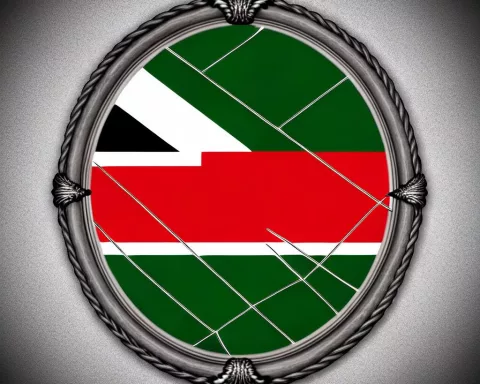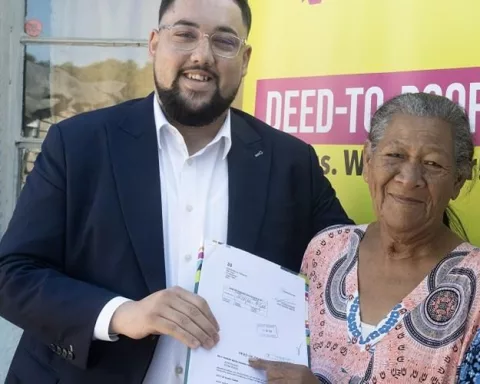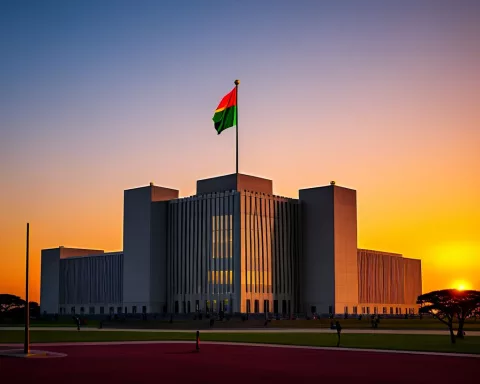In a bold move towards fairness, South Africa is changing how land ownership is documented starting March 5, 2025. New rules will require landowners and buyers to share details about their race, gender, and nationality, shining a light on who owns land in the country. This change aims to fix past wrongs from a time when land ownership was unfairly divided. By collecting this important information, South Africa hopes to create a more equal and just future for everyone. Through these steps, the nation is embracing a brighter path toward true equity in land ownership.
What are the recent changes to land ownership documentation in South Africa?
South Africa’s amendments to the Deeds Registries Act, effective March 5, 2025, require demographic disclosures from landowners and purchasers, including race, gender, and nationality. This shift aims to promote transparency and equity in land distribution, addressing historical injustices in ownership patterns.
Legislative Changes in Land Ownership Documentation
In an era where transparency and fairness in land distribution are increasingly demanded, South Africa has taken a significant step forward with recent amendments to the Regulations of the Deeds Registries Act. These amendments, effective from 5 March 2025, are set to revolutionize land ownership documentation, requiring new levels of demographic disclosure from both purchasers and registered landowners. This initiative highlights a critical shift toward capturing comprehensive demographic data, designed to facilitate thorough statistical analyses and land audits.
The heart of this transformation is the introduction of Form LLL. As reported by Cape {town} Etc, this form compels landowners and purchasers to disclose details regarding their race, gender, citizenship, and nationality. This procedural update reflects a broader societal push towards increased transparency and equity in land ownership—a movement long overdue in a nation still dealing with the remnants of its historical injustices.
The revised Regulation 18 stands as a cornerstone of this legislative change, mandating that every land transfer and associated applications, such as for certificates of registered title, must include Form LLL. This form demands personal demographic details from individuals purchasing land, extending to race, gender, nationality, and, where applicable, passport numbers and permanent residency status. In cases where the property is under company ownership, the form requires the disclosure of the majority demographic characteristics of the entity’s owners, shareholders, or beneficiaries.
The Importance of Accurate Data Collection
Accurate data collection in this context is of paramount importance. Legal professionals, including attorneys, conveyancers, notaries, and statutory officers, can sign the form on behalf of their clients. However, they must obtain precise information to ensure the integrity of the data captured. This requirement places a considerable burden of diligence and ethical responsibility on the shoulders of those within the legal profession.
To enhance the clarity and enforcement of this mandate, Circular CRC 3 of 2025 stipulates that from 5 April 2025, Form LLL must accompany all deeds or documents related to land, mortgage bonds, and notarial bonds lodged with the Deeds Office. The form must be securely attached to the lodgement cover and will be returned to the legal practitioner after data capture. Importantly, any information regarding a party’s race, gender, nationality, and permanent residency remains strictly confidential. According to the new regulations, this data will not appear in any other transactions or documents; it will be used solely for statistical purposes to better understand land ownership trends.
These legislative revisions occur at a pivotal juncture, reflecting an urgent need to address historical imbalances in land ownership in South Africa. With a focus on equitable distribution, the drive for accurate demographic data aims not only to mirror the societal composition of landowners but also to lay the groundwork for rectifying past injustices.
Impact and Broader Context of the Amendments
The amendments to the Deeds Registries Act represent a significant step forward in the ongoing journey towards transparency and equity. By mandating the disclosure of demographic information, these changes facilitate a more nuanced understanding of land ownership patterns, enabling policymakers and stakeholders to craft informed, effective interventions. The requirement for detailed demographic data collection marks a progressive stride towards a more equitable society, leveraging information to pave the way for a fairer future.
The historical context within which these changes are unfolding is essential to understand. South Africa’s complex land ownership dynamics are deeply rooted in its colonial and apartheid past, where racially discriminatory policies resulted in grossly unequal land distribution. The 1913 Natives Land Act, for instance, restricted black land ownership to just 7% of the country, a figure marginally increased to 13% by the 1936 Native Trust and Land Act. Such historical injustices necessitated long-term, systemic reforms—efforts that are still ongoing today.
In this light, the amendments to the Deeds Registries Act can be seen as part of a broader continuum of efforts to redress historical wrongs. The push for comprehensive demographic data collection aligns with the objectives of the National Development Plan 2030, which envisions an inclusive, equitable, and prosperous South African society. Accurate data serves as a critical tool in this endeavor, enabling the identification of trends, gaps, and opportunities in land ownership patterns.
Moreover, these changes resonate with global movements advocating for transparency and equity in land governance. The Voluntary Guidelines on the Responsible Governance of Tenure, adopted by the Committee on World Food Security in 2012, emphasize the importance of transparent and equitable land governance. South Africa’s recent legislative amendments reflect these global principles, underscoring the interconnectedness of local and international efforts towards responsible land governance.
The Path Forward for Landowners and Legal Professionals
As these regulatory changes take effect, they will undoubtedly shape the landscape of land ownership in South Africa. Landowners and prospective purchasers must stay informed and compliant, ensuring that they meet the new requirements. Legal professionals, too, bear a significant responsibility to act with diligence and integrity, ensuring that the data collected is accurate and truthful.
In this evolving landscape, the role of accurate demographic data in shaping policy and practice becomes increasingly evident. By capturing a comprehensive picture of land ownership patterns, South Africa takes a crucial step towards addressing historical imbalances and fostering a more equitable society. The amendments to the Deeds Registries Act represent a bold and necessary move towards a future where transparency, equity, and justice in land ownership are not just ideals but realities.
This legislative shift, marked by the introduction of Form LLL and the revised Regulation 18, heralds a new chapter in South Africa’s journey towards equitable land distribution. As the country continues to grapple with the legacies of its past, these changes offer a path forward, grounded in transparency, accountability, and a commitment to justice. Through accurate data collection and a steadfast dedication to equity, South Africa can pave the way for a more inclusive and fair society, where land ownership reflects the diversity and richness of its people.
In sum, the amendments to the Deeds Registries Act symbolize a transformative approach to land ownership documentation in South Africa. They aim to rectify historical injustices and promote a fairer, more transparent system. As the nation moves forward, the accurate collection of demographic data will be instrumental in shaping policies that reflect and respect the diverse fabric of South African society.
“`markdown
What changes are being made to land ownership documentation in South Africa?
Starting March 5, 2025, amendments to the Deeds Registries Act will require landowners and buyers to disclose demographic information, including race, gender, and nationality. This move aims to enhance transparency and promote equity in land distribution, addressing historical injustices.
What is Form LLL and why is it significant?
Form LLL is a new requirement that mandates the disclosure of demographic characteristics of landowners and purchasers during any land transfer process. This form is crucial because it provides essential data for statistical analyses and land audits, helping to identify and rectify imbalances in land ownership.
How will personal information be handled under the new regulations?
The collected demographic data, including race, gender, and nationality, will remain strictly confidential and will not appear in any public transactions or documents. This information will solely be used for statistical purposes to understand ownership trends better.
Why is accurate data collection important in this context?
Accurate data collection is vital for ensuring the integrity of the information captured during land transfers. Legal professionals, such as attorneys and notaries, must take great care to obtain precise demographic details, thus enhancing the reliability of the data used to inform land ownership policies.
How do these amendments relate to historical land ownership issues in South Africa?
The amendments are part of a broader effort to address the historical injustices stemming from past discriminatory policies, such as the 1913 Natives Land Act. By mandating demographic disclosures, South Africa aims to rectify systemic inequities and promote a more equitable distribution of land.
What responsibilities do landowners and legal professionals have under the new regulations?
Landowners and prospective buyers must familiarize themselves with the new requirements to ensure compliance. Legal professionals are also tasked with collecting accurate demographic data, acting diligently and ethically to support the overarching goal of equitable land ownership in South Africa.
“`












